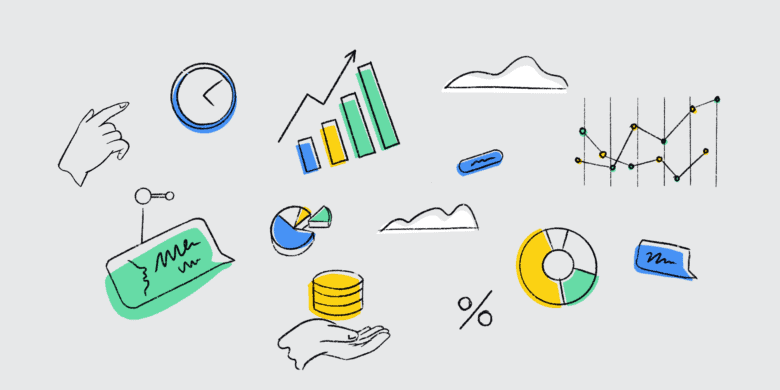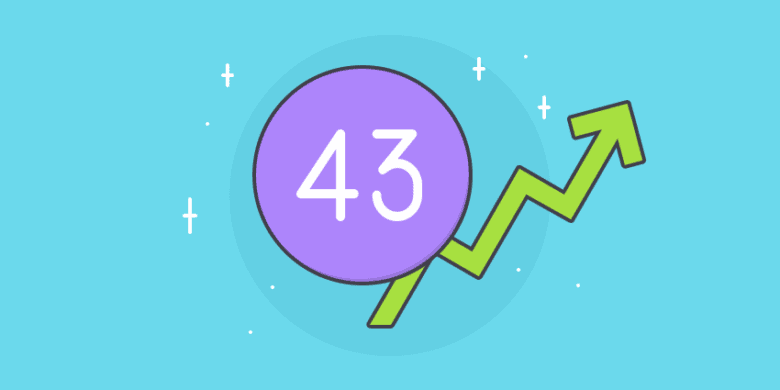Drowning in too many spreadsheets or manual time cards? You need an app for tracking work hours.
Time tracking apps make it easier to log hours, manage billable time, and pay team members for every minute of their work. Whether you’re a freelancer trying to track time across projects or a business owner aiming to increase your team’s productivity, a good time tracking app is an excellent tool in your arsenal.
The best part? There’s a time tracking app for every need. In this guide, you’ll find simple tools for basic time tracking and more robust platforms with invoicing and payroll features. The key is finding the one that fits your workflow perfectly so you can focus on getting the job done.
The importance of tracking work hours
Tracking work hours isn’t just about keeping tabs on logged hours — it’s also about maximizing productivity and simplifying billing. For freelancers, a good time tracking app lets them track time for different clients to simplify the process of managing billable hours.
For businesses, tracking work hours helps optimize workforce management, prevent issues like time theft, and bill clients accurately.
In this post, we’ll explore the top time tracking tools to help you log time entries, manage client billing, and more.
Boost your team’s efficiency with Hubstaff's productivity tools
Best apps for tracking work hours
The best time tracking apps offer a range of features designed to cater to various needs, from basic time tracking to advanced project management. From simple tools that log hours to extensive solutions that integrate with your existing software, there’s a time tracker out there for you.
First, we’ll explore the best free apps for tracking work hours. Many of these tools come with both mobile and desktop apps, allowing you to manage your time entries from anywhere.
Free apps for tracking work hours
Free time tracking apps are a great place to start if you’re new to time tracking or simply looking for basic time tracking features without a hefty price tag. These tools tend to offer essential features like:
- Tracking time
- Adding manual time entries
- Generating reports
- Making simple payments
If you’re looking to leave spreadsheets and manual timesheets behind, here are our favorite free time tracking apps:

- Hubstaff. While more popularly known as an advanced workforce management platform, Hubstaff is also an excellent free time tracking app. The app allows you to seamlessly switch from one task to another with a simple, intuitive interface. It also has basic activity monitoring and payment capabilities, making it perfect for freelancers or solopreneurs just starting out. The free plan supports one user and can be used indefinitely, making it a great choice for those looking to start tracking and increasing productivity without upfront costs.
- Toggl Track. Toggl Track is another good free time tracker known for its colorful interface. It offers time tracking features that let teams create and track time to tasks within the timer. One of the standout features of Toggl Track is the beautiful, intuitive reporting. Toggl’s reports can help you analyze your time usage, improve efficiency, and look good doing it.
- Clockify. Clockify offers a generous free plan with unlimited users, making it ideal for teams looking to track time without incurring costs. While it lacks advanced productivity tools, it provides basic automatic and manual time tracking features you can count on. The app’s simplicity makes it a go-to option for many freelancers.
Best apps for tracking work hours on an iPhone
If you’re using an iPhone for work purposes, you’re not alone. Boasting a 55% market share in all mobile operating systems in the United States, iOS enables users to accomplish a wide range of tasks — and that includes tracking time.
Time tracking on a mobile device may sound limiting compared to a desktop app, but the convenience is unparalleled. Here are some great mobile time tracking options.

- TimeTrack. TimeTrack is designed specifically for iOS users, offering a sleek interface that makes tracking time a breeze. TimeTrack supports time entry for multiple projects, which makes it ideal for freelancers and consultants with multiple clients. Integrations with popular web and desktop apps allow you to sync your time tracking data across platforms for a comprehensive view of your productivity.
- HoursTracker. HoursTracker is another solid choice for iPhone users. Known for its easy-to-use interface and reporting capabilities, HoursTracker also provides tracking reminders to help you stay on top of your work hours. It’s particularly useful for those who need to track time on the go, with features like GPS-based time entry and hours categorization by client or project.
- Hubstaff. Hubstaff’s iPhone app stands out with its GPS capabilities and automatic time tracking powered by geofencing. It’s perfect for teams that need to track time and location simultaneously. The mobile app allows you to easily start and stop timers and automatically tracks time based on your location. Hubstaff integrates seamlessly with its web app, allowing you to access detailed time tracking data and reports from your desktop without losing a second of tracked time.
Best overall apps for tracking work hours
Time tracking is a powerful process. While it’s a valuable practice that stands well on its own, it also complements other business aspects like productivity monitoring, payroll, and workforce analytics.
The best time tracking software doesn’t treat these processes as separate tasks. Instead, they streamline everything so you can accomplish more with less effort.
- Hubstaff. Hubstaff’s wide range of productivity and team management features make it a top choice for businesses of all sizes. It provides advanced features like employee productivity, scheduling, project budgeting, and advanced workforce analytics. It also integrates with several popular platforms, allowing you to further optimize your workflow and pay teams seamlessly across an array of payroll apps from one central location.
- DeskTime. DeskTime is a time tracking tool with robust productivity monitoring features. It has automatic time tracking, attendance tracking, and idle time detection. DeskTime also includes project management features that allow users to create tasks, monitor project progress, and manage resources more effectively. Its focus on real-time tracking and detailed analytics helps teams stay on top of their work.
- Harvest. Harvest combines simplicity with powerful features. It allows users to track time automatically or manually create time entries. Harvest also offers advanced features like invoicing, expense tracking, and resource management. With its user-friendly interface and comprehensive reporting tools, Harvest helps you manage time spent on projects, streamline billing, and adapt to various workflows seamlessly.

How to choose the right app for tracking work hours
Okay, we’re biased toward Hubstaff, but we have to admit that finding the right time tracker for you can be a real head-scratcher. It isn’t always about finding the one with the biggest list of features or snagging the absolute cheapest option.
The best time tracking app for you depends on your unique needs. Are you a freelancer managing multiple projects, an enterprise-grade business looking to streamline administrative processes, or somewhere in between?
When comparing all these apps, it’s essential to consider how they align with your workflow and goals. Do you need an automatic time tracker that handles unlimited projects and tasks, or are you more focused on detailed reporting and resource scheduling?
As hard as it sounds, look beyond the marketing hype and focus on how each app can help you track work hours and enhance efficiency.
Key features to consider
When choosing a time tracking app, it’s crucial to focus on the features that can have tangible effects on your workflow. The right app should enhance productivity and seamlessly integrate with existing tools.
- Productivity tools. Productivity tools help streamline your workday, minimize distractions, and help ensure that time is spent effectively. These tools can help freelancers, managers, and remote teams stay on track and boost their efficiency over time.
- Reporting capabilities. Detailed reports are essential for understanding how time is used. They also guide leaders in making business decisions. Businesses can use these reports to monitor team performance, while freelancers can leverage them to provide transparency to clients.
- Payroll and invoicing features. What good is tracking hours if it doesn’t translate into getting paid? When time tracking, payroll, and invoicing are all part of a single workflow, life is easier for everyone. Freelancers can automatically generate client invoices, while businesses can use these features to streamline payroll processes. Tools like Hubstaff fully automate these processes to reduce manual errors and save time and money.
- Integration support. A good app should work well with your existing tech stack of accounting, communication, and project management software. This helps businesses maintain a cohesive workflow.
- Support for desk and mobile teams. GPS tracking and geofencing features may be valuable if your company has mobile teams. Many other apps have flexible feature sets that cater to office, remote, and field teams, eliminating the need for separate time tracking platforms.
Consider how each app in your shortlist aligns with your specific needs. What’s important for one user isn’t a dealbreaker for the next, so avoid making decisions without context.
Considerations for freelancers
Freelancers need to consider factors like the number of clients they manage and the industries they work in. Are you juggling multiple projects across different time zones? Maybe you need to keep track of billable hours for a wide range of services.
Features like invoicing and project tracking help ensure that the time you log translates to fair and accurate income. Apps with automatic time tracking allow you to concentrate on your tasks and grow your personal productivity.
Think about features like customizable invoices, detailed project reports, and seamless integration with your existing tools.
Your goal should always be to gain more time for actual work. If you’re spending too much time figuring out how your tools work, you might want to consider replacing some of them.
Considerations for businesses
Businesses, large or small, need to consider scalability when choosing a time tracking app. Are you managing a growing team or planning to expand your workforce soon?
The right tool should be able to grow with you. That means providing basic features for small businesses but also more advanced options as your business scales and your needs change.
Team management is another key factor. Look for apps that offer comprehensive features like timesheet management, attendance tracking, and resource allocation. These tools can help you keep the entire team on track and keep project budgets within healthy levels.
Advanced reporting features are non-negotiable for businesses. Use tools with analytics features to optimize productivity, so your team doesn’t slow down even as it grows.
Frequently asked questions
What is a good app to track your hours?
We might be biased, but Hubstaff is a solid choice. In addition to time tracking, it offers comprehensive features like automated timesheets, project budgeting, invoicing, and payroll, making it suitable for businesses of all sizes.
How do you track work hours?
To track work hours, you can either track time manually or use a time tracking app. All the apps that are best for time tracking help you meet your goals by improving productivity, helping you stay on top of project budgets, or maintaining accurate records.
Use an automatic time tracker and regularly make manual updates to your time entries as needed. From there, you can review your tracked data and use the additional features at your disposal to improve your time management.
Is there an hours tracking app for self-employed professionals?
Yes, there are several apps designed specifically for self-employed individuals and solo entrepreneurs. These apps allow you to track time, manage online timesheets, and generate invoices with just a few clicks. Check out the free apps we mentioned above to get started.
Running a business or dealing with clients? Get Hubstaff.
Time tracking, payments, project budgeting, and invoicing on one centralized platform.
[ Try Hubstaff now ]
Conclusion
Finding the right time tracker is a journey in itself. Each platform offers unique features, from simple timesheet apps to comprehensive workforce management tools. There’s no shortage of options.
Ultimately, the key to successful time tracking is consistency. You won’t be immediately more productive one hour after you start the timer, but you will see results. That’s how you know you picked the right tool. Stick with it, and let the gradual improvements speak for themselves.
Most popular
The Fundamentals of Employee Goal Setting
Employee goal setting is crucial for reaching broader business goals, but a lot of us struggle to know where to start. American...
Data-Driven Productivity with Hubstaff Insights: Webinar Recap
In our recent webinar, the product team provided a deep overview of the Hubstaff Insights add-on, a powerful productivity measurem...
The Critical Role of Employee Monitoring and Workplace Security
Why do we need employee monitoring and workplace security? Companies had to adapt fast when the world shifted to remote work...
15 Ways to Use AI in the Workforce
Whether through AI-powered project management, strategic planning, or simply automating simple admin work, we’ve seen a dramatic...




